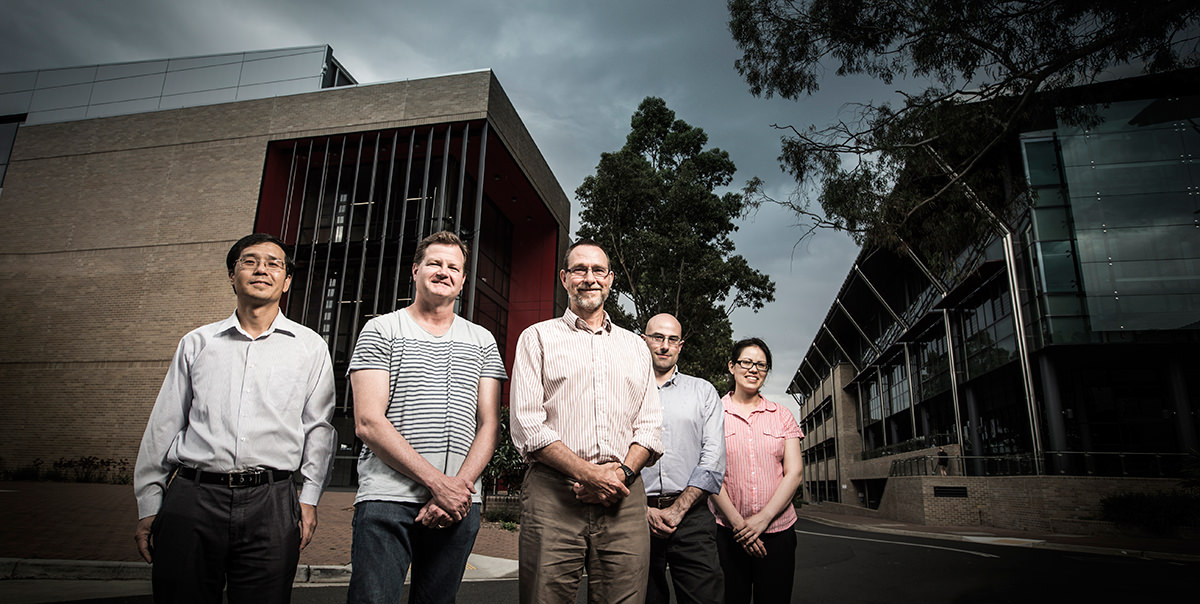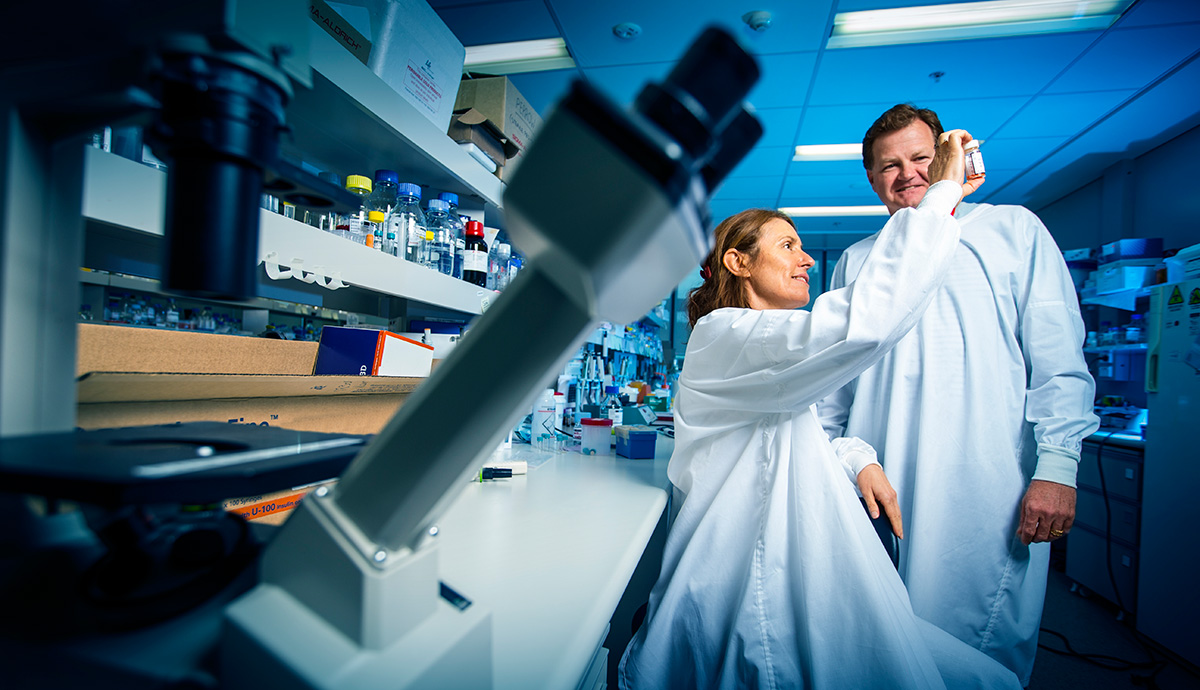November 9, 2015
More than $3million awarded for vital medical research
Major health research funding will help develop new breast cancer drugs, reduce obesity and fight dementia.
Federal Minister for Health Sussan Ley announced today (9 November) that five researchers from UOW and the Illawarra Health and Medical Research Institute (IHMRI) have received $3.2 million in National Health and Medical Research (NHMRC) grants or fellowships in the latest round of funding.
The announcement comes after UOW’s to investigate the impact of new reforms to home care arrangements for people with dementia, a disease which affects some 340,000 Australians.
Deputy Vice-Chancellor (Research and Innovation) Professor Judy Raper said six the grants of more than $3.2million in total would allow some of Australia’s best minds to tackle critical health and medical problems that affect us all.
“This outstanding result shows the high calibre of ground breaking health and medical research being conducted at UOW.”
Associate Professor Michael Kelso (pictured above with colleague Professor Marie Ranson) will lead a team on a three-year, $611,000 project investigating a new class of breast cancer drugs that specifically target cancerous cells and stop them from spreading.
Professor Kelso said the drugs are based on a common diuretic, amiloride, which is currently used to treat high blood pressure and heart failure in patients who need to limit their excretion of potassium.
“Previous research has shown that at high doses in animals, amiloride stops tumours from growing and metastasising, or spreading. But you can’t use amiloride safely in humans at doses high enough to see anticancer effects without dangerous changes in potassium levels”
“If we can get the structural changes right we will abolish amiloride’s diuretic/potassium-sparing effects and create an unprecedented new class of breast cancer drugs that act via a novel, dual-targeting mechanism.”
Breast cancer is the most common cancer affecting women, with one in eight Australian women predicted to be diagnosed with the disease in their lifetime.
Associate Professor Chao Deng will also lead a team of researchers on a three-year, $576,000 project that aims to prevent antipsychotic-induced obesity in children.
Professor Deng said over the past decade, there has been a sharp world-wide increase in antipsychotic treatment among paediatric patients, with antipsychotic drugs reported to have been prescribed to children as young as two.
“Antipsychotic drugs have been prescribed not only to treat childhood-onset schizophrenia, but are also widely used to treat children with bipolar disorder, autism, ADHD, Tourette’s and anxiety.”
Professor Deng said that antipsychotic drugs were developed for adult patients and can have serious side effects, one of which is an increased susceptibility to obesity.
“Treatment with antipsychotics results in much worse weight gain and other metabolic side-effects in paediatric patients than in adults. However, the underlying mechanisms are poorly understood,” he said.
Early career researcher Dr Amy Wyatt will head a three-year project that examines the cause of Alzheimer’s disease, the leading cause of dementia world-wide and a growing burden on our ageing society.
Dr Wyatt said recent studies support the idea that in Alzheimer’s, a harmful relationship exists between inflammation in the brain and the accumulation of amyloid beta, a peptide with toxic properties.
Dr Wyatt’s $461,000 project will examine the details of this relationship with a focus on the toxicity and clearance of amyloid beta when it is modified by hypochlorite, a chemical that is generated during inflammation.
Dr Marco Petasecca has received a $359,000 grant to further develop a 3D imaging system over three years that will allow for safer and more accurate treatment of prostate cancer.
The imaging system, 3D-BrachyView, aims to bring 3D virtual reality into the quality assurance and training of physicists in prostate cancer brachytherapy, an advanced cancer treatment that involves the placement of radioactive seeds in or near the tumour itself, giving a high radiation dose to the tumour, while reducing radiation exposure to surrounding healthy tissues.
“3D-BrachyView represents a major advance in intra-operative quality assurance and is a training tool for physicists who will be able to test themselves on realistic operative scenarios. This will hopefully lead to a reduction of post treatment complications and significant health cost savings,” Dr Petasecca said.
Professor Brett Garner has also received more than $687,000 for a five-year Senior Research Fellowship that will see him characterise new therapeutic targets for Alzheimer's prevention and treatment. This is the second time Professor Garner has been awarded a Senior Research Fellowship.
“My goal is to fully characterise the molecular targets we have recently discovered in order to provide therapeutically plausible approaches to treat Alzheimer's, a devastating disease that lacks a curative treatment,” Professor Garner said.

Photo (from left): Associate Professor Chao Deng, Associate Professor Michael Kelso, Professor Brett Garner, Dr Marco Petasecca and Dr Amy Wyatt.
